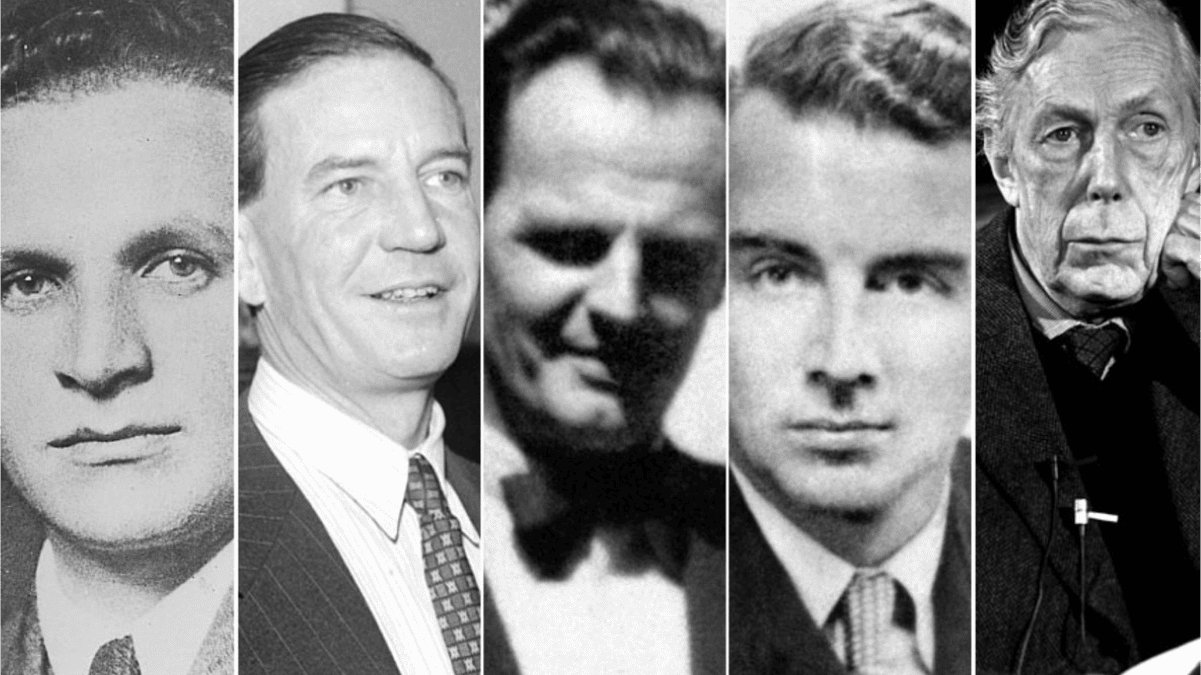Who are the Cambridge Five?
Maclean, Burgess, Philby, and Blunt are the names given to British members of a KGB spy ring that penetrated Britain's intelligence system and provided vital information to the Soviets during World War II and the early stages of the Cold War.

Members of the ring were Donald Maclean (1913 – 1983), Guy Burgess (1911 – 1963), Harold ‘Kim’ Philby (1912 – 1988) and Anthony Blunt (1907 – 1983). Several other people have been claimed to have belonged to the ring, including John Cairncross. Blunt became a communist in the early 1930s and was recruited by the NKVD (later KGB), the Soviet security agency. While lecturing at Cambridge University, Blunt was instrumental in recruiting three others who were students there.
The Cambridge Five was a ring of spies in the United Kingdom that passed information to the Soviet Union during the Second World War and the Cold War and was active from the 1930s until at least the early 1950s. None of the known members were ever prosecuted for spying. The number and membership of the ring emerged slowly, from the 1950s onwards.
Burgess became a journalist after leaving university, but when war broke out he joined MI6. Maclean was at the Ministry of Foreign Affairs at the same time. Stating that they were under suspicion by Philby in 1951, Burgess and Maclean fled to the Soviet Union, where they spent the rest of their lives.
Philby was also a journalist but joined SIS (also known as MI6) in 1940. Just before the war ended, he was appointed head of the anti-Soviet section of SIS. Thus, the man accused of organizing an operation against the Soviets was a KGB agent. He later became a British intelligence officer in the USA. After Burgess and Maclean fled to the Soviet Union, Philby fell under suspicion and was forced to resign. He fled to the Soviet Union in 1963 and died there. Blunt worked for MI5 during the war. After the war, he had a distinguished career as an art historian. He was Director of the Courtauld Institute and Surveyor of the Queen's Pictures. He was made a British knight in 1956. In 1963, the British government discovered that he was a spy, but offered him immunity in exchange for information. In 1979 the story emerged and Blunt was stripped of his knighthood.
